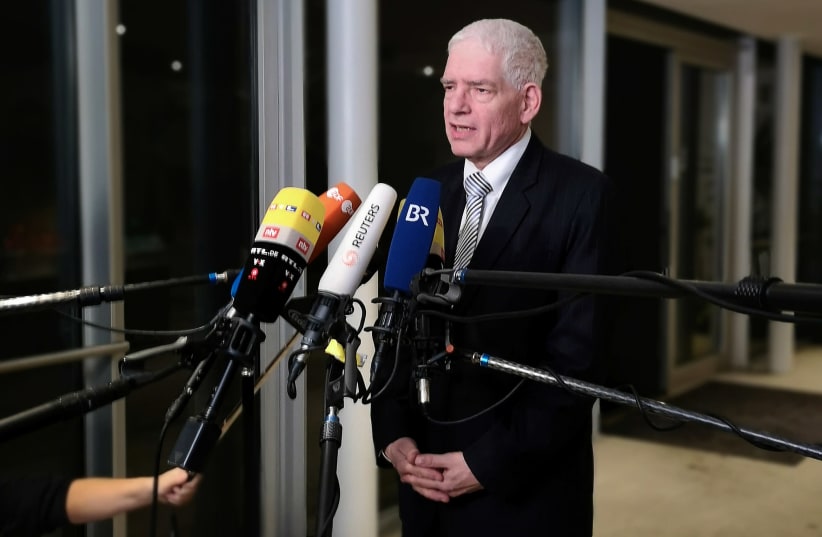As Germany’s leaders prepare to lay wreaths to mark the “Day of Liberation” on May 8 – the day in 1945 when German generals signed an unconditional surrender – many Jews are worried about the popularity of the far Right.
“Germany’s government knows its enduring responsibility for the Nazi era,” Josef Schuster, president of the Central Council of Jews in Germany, told the Neue Osnabruecker Zeitung paper.
“But if you interpret Germany as a country, with all its residents, and ask us if they have also understood and learned from history, then I must say that I have never been convinced, and at the current time I am certainly not,” he said.
Schuster also said he was worried that a certain amount of antisemitism appeared to have become an accepted fact of life in Germany, the paper said.
Last year an antisemitic gunman attacked a synagogue and a kebab shop in the eastern city of Halle, killing two people.
Some 1,800 criminal incidents were committed against Jews in 2018, mostly by individuals espousing far-right views, the government has said.
Schuster said there was a dangerous amnesia about history among younger people.
“In their minds, World War Two is as far away as the empire, there is no longer a reference point. If about half of young people don’t know the term ‘Auschwitz’, something’s wrong,” he said.
The German government expressed alarm at a survey by ComRes market research institute in 2018 which showed that 40% of Germans between 18 and 34 thought they know nothing or little about the Holocaust, more than the European average of 33% — one of several surveys with similar results in recent years.
In the past decade or so, Germans have tended to focus more on their own suffering during World War Two, which Nazi Germany started.
In particular, some prominent members of the far-right Alternative for Germany (AfD), the third-biggest parliamentary party, have suggested history teaching should focus more on German victims.
